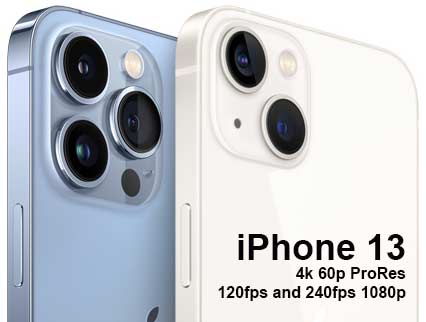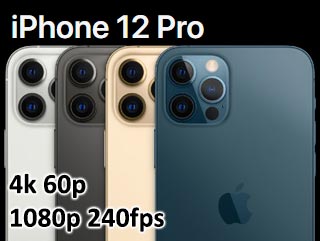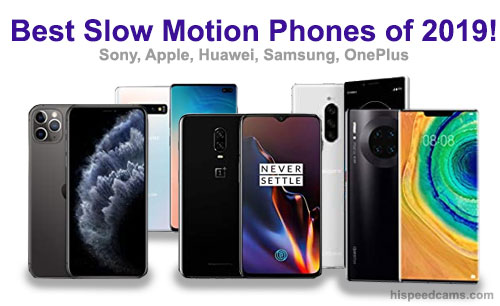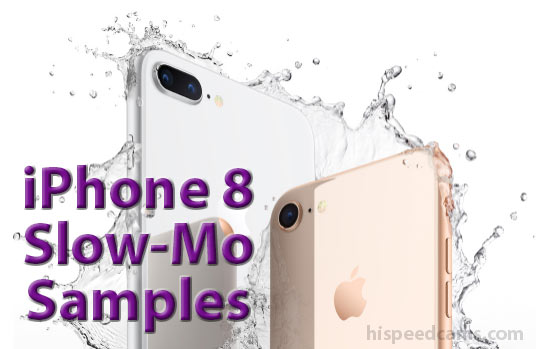The iPhone 12 line is a continuation of what Apple has been hinting at since it got serious about video recording on their phones. However, there is no increment in the maximum frames per second the phone is able to record with the 120p and 240p at 1080p as the maximum the phone is able to record. There is also what could be a feature that is missing that of 120fps 4k considering the phone is already recording 120fps at 4k for HDR video and then delivering it in a 60p wrapper.
With all that said the phone has impressive video and photo specs that will have rivals trying to compete in outlandish features like super zooms or more than 3 cameras to be able to get the spotlight off the iPhone. There is no question the iPhone 12 is the best camera phone Apple has ever delivered but isn’t this the same result every year when a new device from the company is released? Yes and there lies the problem of yearly upgrades only getting incremental updates and not leapfrog features.
- HDR video recording with Dolby Vision up to 60 fps
- 4K video recording at 24 fps, 30 fps, or 60 fps
- 1080p HD video recording at 30 fps or 60 fps
- 720p HD video recording at 30 fps
- Optical image stabilization for video (Wide)
- 2x optical zoom in, 2x optical zoom out; 4x optical zoom range (iPhone 12 Pro)
- Digital zoom up to 6x (iPhone 12 Pro)
- 2.5x optical zoom in, 2x optical zoom out; 5x optical zoom range (iPhone 12 Pro Max)
- Digital zoom up to 7x (iPhone 12 Pro Max)
- Audio zoom
- Brighter True Tone flash
- QuickTake video
- Slo‑mo video support for 1080p at 120 fps or 240 fps
- Time‑lapse video with stabilization
- Night mode Time-lapse
- Extended dynamic range for video up to 60 fps
- Cinematic video stabilization (4K, 1080p, and 720p)
- Continuous autofocus video
- Take 8MP still photos while recording 4K video
- Playback zoom
- Video formats recorded: HEVC and H.264
- Stereo recording
- HDR video recording with Dolby Vision up to 30 fps
- 4K video recording at 24 fps, 30 fps, or 60 fps
- 1080p HD video recording at 30 fps or 60 fps
- 720p HD video recording at 30 fps
- Optical image stabilization for video (Wide)
- 2x optical zoom out
- Digital zoom up to 3x
- Audio zoom
- Brighter True Tone flash
- QuickTake video
- Slo‑mo video support for 1080p at 120 fps or 240 fps
- Time‑lapse video with stabilization
- Night mode Time‑lapse
- Extended dynamic range for video up to 60 fps
- Cinematic video stabilization (4K, 1080p, and 720p)
- Continuous autofocus video
- Take 8MP still photos while recording 4K video
- Playback zoom
- Video formats recorded: HEVC and H.264
- Stereo recording
IPhone 12 Pro Slow Motion Samples are pending:
We received some so-called slow motion samples from the iPhone 12 but we have determined that they are fake and not from the phone themselves. The iPhone 12 ships on October 23rd so any samples you might see online could only be from review units and there was no real video quality review that was authenticated. We will have to wait some time for the iPhone 12 video samples to start coming out. We expect increased dynamic range and better overall noise profile on the iPhone 12 vs the 11, hopefully, we will see a real improvement in the way the phone captures slow motion in 1080p without much in the way of artifacts and aliasing.
Dolby Vision Recording on iPhone 12:
Dolby Vision | Demo | Dolby by Dolby:
In the video above you can see that Dolby Vision is basically a set of technologies that encode video in HDR with high precision color and brightness values that try to mimic reality. The new iPhone 12s record in Dolby Vision which probably use the high frame rate recording (60p for 30p) and 120p for 60p) HDR.
It is of note that slow motion video at 120fps or 240fps in 1080p will not use Dolby Vision as you would need those frame rates doubled to record it. It is a technology best used by 4k recording up to 60fps.
Of course, you will not get Hollywood production quality footage on the phone but it is still going to deliver a better image than your average camera due to the color science behind it. Also of note is that you will need a TV, monitor or projector that has Dolby Vision compatibility to experience this high dynamic range video footage recording feature.
If you have such a TV we can recommend the clip below to test it:
Perfect Black HDR 8k Dolby Vision by Eugene Belsky: → Continue Reading Full Post ←




